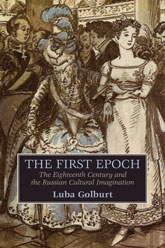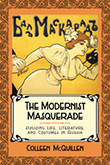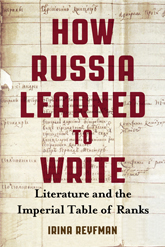|
How Russia Learned to Write
Literature and the Imperial Table of Ranks
Irina Reyfman
Publications of the Wisconsin Center
for Pushkin Studies
David M. Bethea, Series Editor
How compulsory service to the state shaped the course of Russian literature
In the eighteenth century, as modern forms of literature began to emerge in Russia, most of the writers producing it were members of the nobility. But their literary pursuits competed with strictly enforced obligations to imperial state service. Unique to Russia was the Table of Ranks, introduced by Emperor Peter the Great in 1722. Noblesse oblige was not just a lofty principle; aristocrats were expected to serve in the military, civil service, or the court, and their status among peers depended on advancement in ranks.
Irina Reyfman illuminates the surprisingly diverse effects of the Table of Ranks on writers, their work, and literary culture in Russia. From Sumarokov and Derzhavin in the eighteenth century through Pushkin, Gogol, Dostoevsky, and poets serving in the military in the nineteenth, state service affected the self-images of writers and the themes of their creative output. Reyfman also notes its effects on Russia’s atypical course in the professionalization and social status of literary work.
 Irina Reyfman is a professor of Russian literature at Columbia University. She is the author and editor of several books, including Rank and Style: Russians in State Service, Life, and Literature and Ritualized Violence Russian Style.
Irina Reyfman is a professor of Russian literature at Columbia University. She is the author and editor of several books, including Rank and Style: Russians in State Service, Life, and Literature and Ritualized Violence Russian Style.
Praise
“Compelling, clever, and persuasive. Examining many Russian writers’ self-fashioning as members of the nobility and their careers in public service, Reyfman admirably shows that the understanding of rank should inflect
all our arguments and histories of the writing profession in Russia.”
—Luba Golburt, University of California, Berkeley
“Indispensable reading for all who study Russian literature of the Imperial period. Reyfman adds nuance and necessary reevaluation to our understanding of how literary careers and literary biography evolved in Russia in the eighteenth and nineteenth centuries.”
—Andrew Kahn, University of Oxford
Of Related Interest
|

The First Epoch
The Eighteenth Century and the Russian Cultural Imagination
Luba Golburt |

The Modernist Masquerade
Stylizing Life, Literature, and Costumes in Russia
Colleen McQuillen |
|

Larger images
July 2016
LC: 2015039995 PG
256 pp. 6 x 9
|

